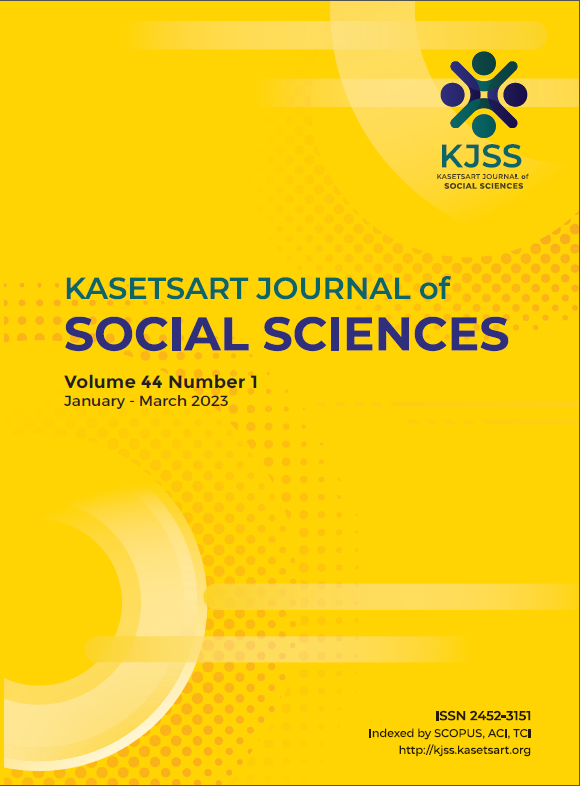Development of learning management model for enhancing scientific citizenship of upper secondary school students
Keywords:
citizenship, learning management model, scientific citizenshipAbstract
The research objectives were: (1) to develop a learning management model for enhancing scientific citizenship; and (2) to study the results of scientific citizenship after the learning management model implementation. The sample consisted of 53 tenth-grade students who were selected by using purposive sampling. The learning management model was conducted by quantitative research methodology. Two phases were used in the research methodology: The first phase was the development and examination for the quality of the learning management model. The second phase was the implementation of the developed learning management model. The research instrument included: a learning management model, learning management plans, a scientific citizenship test, and a scientific citizenship test scoring rubric. Data results were then statistically analyzed based on the mean, standard deviation, and t-test. The research results indicated that: (1) the developed learning management model consisted of five components: principle, objective, learning instruction, evaluation, and limitation. There were five steps comprising the first phase. Step 1: confronting socioscientific issues, step 2: analyzing stakeholders, step 3: exploring the alternatives of scientific citizenship from various perspectives, step 4: realizing and considering different perspectives, and step 5: expressing participation in society. The results of the assessment for suitability by experts were at the most appropriate level, with a mean of 4.60 and a standard deviation of 0.54.; (2) Students who learned using the learning management model had higher post-test scores than pre-test scores of scientific citizenship and higher than the cut-off score at a significance level of .05.
Downloads
Published
How to Cite
Issue
Section
License

This work is licensed under a Creative Commons Attribution-NonCommercial-NoDerivatives 4.0 International License.
This is an open access article under the CC BY-NC-ND license http://creativecommons.org/licenses/by-nc-nd/4.0/










